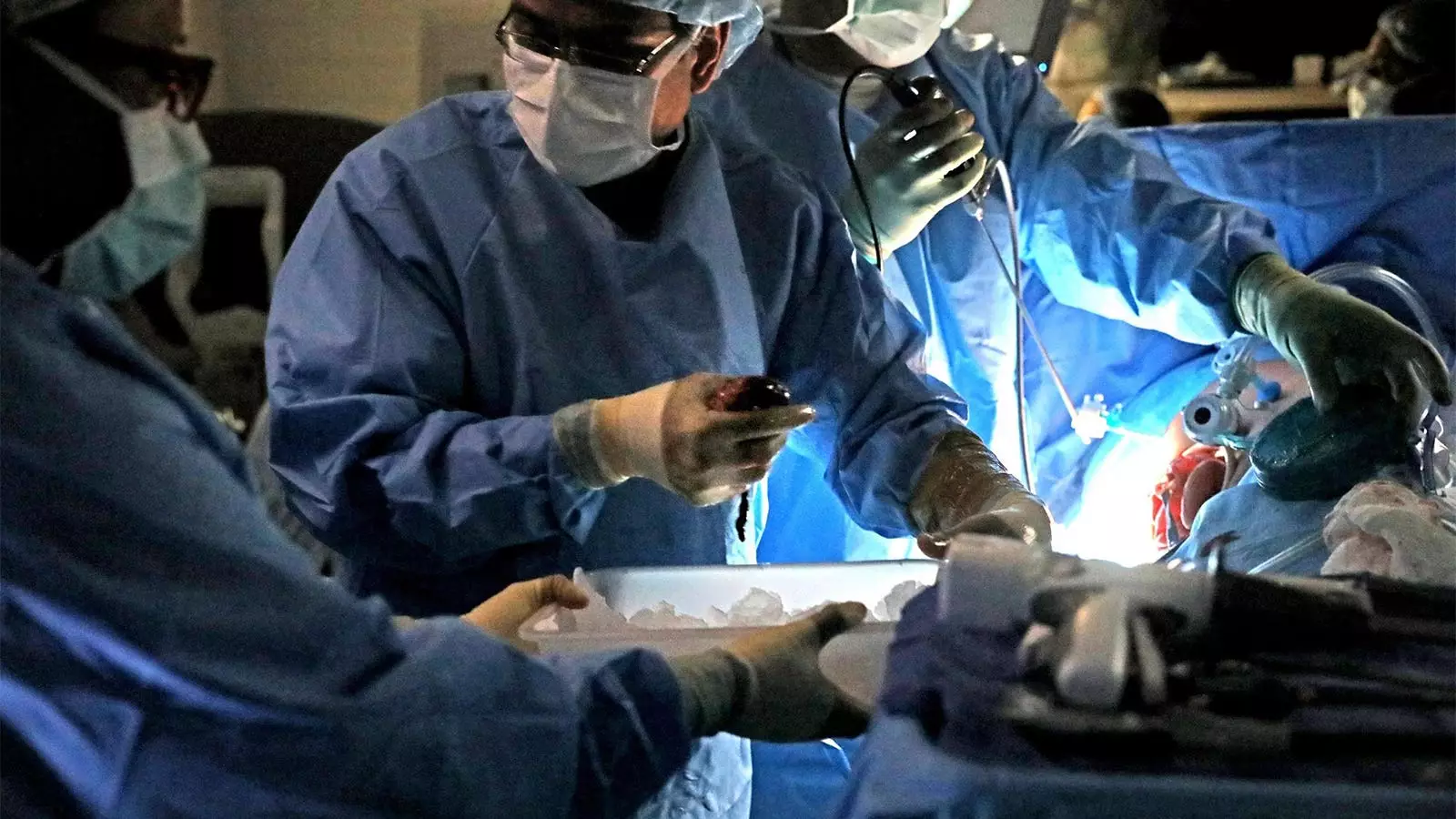The poignant story of Simon and Andre highlights the significant emotional and financial challenges faced by individuals considering living organ donation. After an extended absence due to work obligations, Simon was taken aback by the deteriorating health of his best friend, Andre, who was grappling with kidney disease and in dire need of a transplant. The toll of Andre’s condition was palpable, stirring both compassion and a sense of urgency in Simon. When confirmed as a compatible donor, Simon’s offer to contribute a kidney was a selfless act, but the institutional barriers he faced from his employer served as a stark reminder of the inadequacies in the support system for living donors.
Despite being a lifesaving choice, living organ donation is fraught with complications. Many potential donors, like Simon, are often unable to fulfill their altruistic intentions due to inadequate employer policies regarding unpaid leave during recovery. The reality is that many individuals contemplating this decision are also burdened with the pressures of supporting their families, thus making the choice to donate not only a moral dilemma but a logistical and financial one as well.
The Dire Need for Organ Donations
One cannot underestimate the severity of the organ donation crisis affecting thousands of patients. With over 100,000 individuals on the national transplant waiting list, 17 people perish every day while awaiting an organ. As the numbers illustrate, the demand far surpasses the available supply, and the plight of those who need a transplant is increasingly urgent. Living donation, which encompasses the act of donating a kidney or part of the liver while still alive, represents a critical alternative to deceased donation. In 2023 alone, over 6,900 individuals chose to donate, showcasing a charitable spirit that warrants ample support and recognition.
Yet, in light of the pressing need for organ transplants, we find ourselves at an impasse where obstacles remain intact. Living donors often face heightened insurance premiums, potential coverage denial, and myriad logistical challenges, making the pursuit of this noble act fraught with uncertainty and economic strain.
Given the established barriers faced by living organ donors, it’s crucial to explore systemic changes that can encourage and facilitate this life-saving option. The Affordable Care Act already provides some protections against discrimination from health insurers based on pre-existing conditions. Additionally, the Family and Medical Leave Act (FMLA) permits eligible employees to take time off for organ donation. However, the fragmented nature of these protections and the lack of universal implementation significantly limit their effectiveness.
Recent legislative initiatives, including the Living Donor Protection Act, aim to address these critical gaps. By offering additional reassurance and clarity regarding insurance coverage for living donors, this legislation could eliminate fears surrounding canceled policies and coverage denials. Similarly, the Honor Our Living Donors (HOLD) Act emphasizes a shift in the income eligibility criteria for financial assistance, reinforcing the principle that these financial decisions should not exacerbate the donor’s economic insecurity.
Moreover, the Living Organ Donor Tax Credit Act proposes tangible economic relief by providing a refundable tax credit for donors who encounter out-of-pocket expenses during the donation process. While these proposals represent a positive step forward, their progress through the labyrinthine legislative process remains slow amidst a backdrop of political polarization.
Increasing awareness and creating a supportive environment for living organ donors should be a societal priority. Donor stories like Simon and Andre’s emphasize the vital importance of understanding the personal sacrifices behind the act of donation. Every organ transplant represents not just a procedure; it is a transformation of lives, both for the recipient and the donor.
While the legislative landscape appears daunting, the voices advocating for organ donation must resonate louder. Every day lost to bureaucracy is a day lost for individuals on waiting lists who could otherwise receive the organs they desperately need. As we forge ahead, let us not only advocate for policy changes but also instill a culture that promotes and values organ donation as an integral part of community health.
The responsibility lies with both policymakers and society at large to lessen barriers and amplify the voices and experiences of living donors. Through comprehensive reforms and increased awareness, we can change the narrative surrounding organ donation, empowering more individuals like Simon to take that selfless step toward saving lives. Every organ donated truly makes a difference, and it’s time we foster an environment that magnifies this extraordinary act of kindness.

Leave a Reply